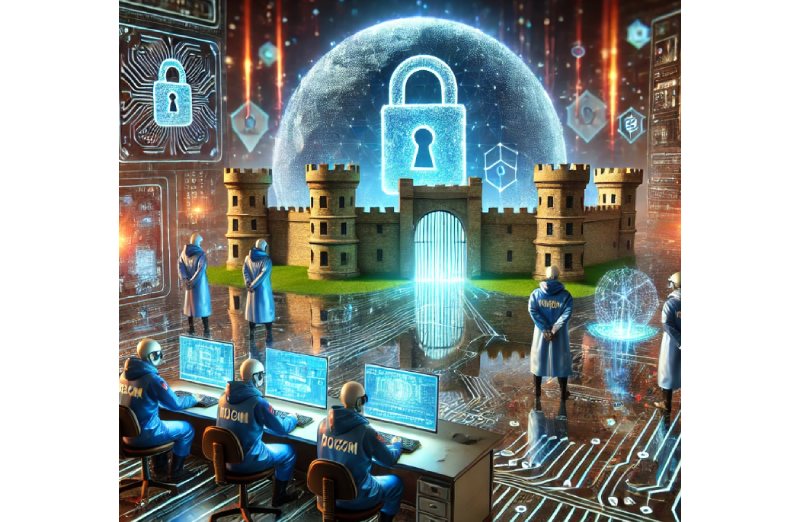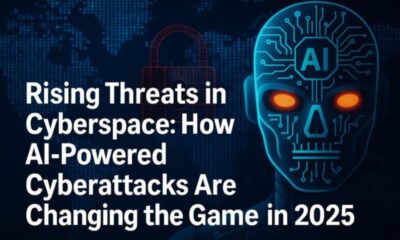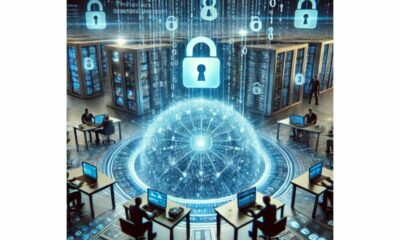Tech
Harnessing Quantum Computing for Unbreakable Cybersecurity Solutions

In the ever-evolving landscape of technology, quantum computing has emerged as a revolutionary force, promising to transform the way we secure our digital world. The potential of quantum computing to solve complex problems in mere seconds, as opposed to the years it might take classical computers, is both thrilling and terrifying, particularly in the realm of cybersecurity. At the forefront of this transformation is quantum cryptography, particularly Quantum Key Distribution (QKD). QKD leverages the principles of quantum mechanics, such as entanglement, to create unbreakable encryption methods. By utilizing entangled qubits, two parties can establish a shared key that remains impervious to interception, ensuring secure communication. This innovation holds the promise of creating cybersecurity systems that are immune to hacks, marking a significant leap forward in data protection. However, the path to achieving these unbreakable solutions is fraught with challenges.
Maintaining entanglement over long distances is a significant hurdle, as signal degradation can occur. Researchers are exploring technologies to amplify or repeat the signal without disrupting entanglement, a critical area of study in advancing quantum communication. Another layer of complexity arises in securing the quantum computers themselves. Even with robust communication methods, vulnerabilities in the quantum processing units could compromise the entire system. Organizations invested in quantum technologies are focusing on comprehensive cybersecurity measures that protect both communication channels and processing units. The development of agreed-upon standards and protocols is another critical component. As quantum computing gains traction, ensuring compatibility and security across different systems and jurisdictions is essential. Additionally, the applications of quantum computing extend beyond communication, with potential implications for data storage security, authentication protocols, and even AI security, each requiring tailored solutions. The urgency to develop these new cybersecurity solutions is heightened by the dual-edged nature of quantum computing. While it offers revolutionary potential, it also poses a threat if malicious actors gain access. Therefore, there is a pressing need to implement robust solutions before quantum computing becomes widely accessible. Finally, public awareness and education play a crucial role. Most individuals are unaware of the complexities and implications of quantum computing, necessitating efforts to educate and inform about both the benefits and risks. In conclusion, harnessing quantum computing for unbreakable cybersecurity solutions is a multifaceted endeavor that demands innovation, collaboration, and awareness. As we navigate this new frontier, the potential to revolutionize cybersecurity is immense, offering hope for a future where our digital interactions are inherently secure..
Shanu Khare
Assistant Professor
Chandigarh University
-

 Business4 weeks ago
Business4 weeks agoGoing Beyond Expectations: Apex Service Partners and Putting People First
-

 Business4 weeks ago
Business4 weeks agoKurt James Wichman Explains How Global Brands Go Local
-

 Entertainment4 weeks ago
Entertainment4 weeks agoVISHAAD, Starring Rajeshwar, Ashish Vidyarthi and Ketaki Narayan, Heads to KIFF 2025!
-

 Real Estate4 weeks ago
Real Estate4 weeks agoStephen Monro on the Evolution of Mediation Services in Real Estate
-

 Business3 weeks ago
Business3 weeks agoWhy Hundreds Choose Movers in Raleigh for a Fresh Start
-

 Travel3 weeks ago
Travel3 weeks agoBwindi’s Gorilla Tourism: Saving Wildlife, Empowering Communities
-

 Tech3 weeks ago
Tech3 weeks agoGoogle Offers New Travel-related Features To Search And Launches Its AI “Flight Deals” Tool Around The World
-

 Education2 weeks ago
Education2 weeks agoJoseph Curran: Using Legal Writing and Advocacy to Simplify Complex Issues for Clients






















